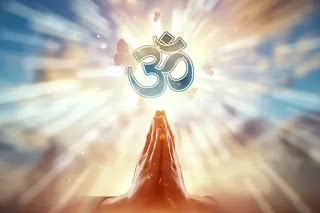Every religion can be divided into two parts, one of which may be called the non-essential and the other the essential. Doctrines, dogmas, rituals, ceremonies, and mythologies of all the organized religious creeds come under the head of the non-essential. It is not meant by this that they are useless; on the contrary, the very fact of their existence proves that they are helpful and necessary at certain stages of progress. What I mean is, that it cannot be said that they are absolutely necessary for making one live a purely spiritual life. A man or a woman may be highly spiritual without performing any of the rituals and ceremonies ordained, either by the scriptures of the world, or by any religious hierarchy. A man or a woman may be truly religious without believing in any creed, doctrine, dogma, or mythology. Those who think that these non-essentials are indispensable for attaining to the ultimate goal of religion, have not yet grasped the fundamental principles that underlie all religions; they mistake the non-essential for the essential; they cannot discriminate the one from the other; they lack the insight of spiritual illumination. Those who understand the essentials of religion and strictly follow them in their every-day life do not disturb themselves about the non-essentials; these simple and sincere souls alone reach the goal of religion by the shortest way possible
The essentials of religion are principally two: Self-knowledge and Self-control. Self-knowledge means knowledge of the higher Self, the divine nature of man; and self-control is the restraint of the lower self or selfish nature. True knowledge of the divine Self comes when the lower self is subdued. In ancient times, Greek philosophers understood these two as the essentials of religion, therefore over the temple entrance at Delphi the phrase “Know Thyself” was so conspicuously engraven. Heraclitus, the ancient Greek philosopher, interpreted this motto by saying: “It behooves all men to know themselves and to exercise self-control
The system of Yoga deals entirely with the essentials of religion; it does not teach any dogma, creed, ritual, ceremony, or mythology. Its main object is to teach mankind the different methods of attaining the knowledge of the true Self, and the practice of self-control. A true Yogi is one who has perfect control over himself, and who has acquired self-knowledge. The science of Yoga explains what self-control is, how it can be acquired, and what is the nature of self-knowledge. A Yogi therefore reaches the ultimate goal of religion and spiritual perfection without wasting his energy in the practice of non-essentials
The non-essentials of religion are like a huge heap of husks, under which lies hidden the kernel of the essential truth; wherever there is too much of non-essentials, there prevail religious corruption, superstition, and false theology, the main object of which is to convince the ignorant masses that the heap of non-essential dogmas, doctrines, ceremonies, and rituals must be observed by all who wish to be religious. But the science of Yoga, being free from dogmas, ceremonies, and rituals, suffers neither from corruption, nor from superstition, nor does it need any theology. It is pure and simple. It welcomes to its fold all sincere and earnest souls who are searching for higher truth and spiritual life, and seeks tp make them spiritual by giving the essentials of religion as their highest ideal. It teaches them the method by which self-control and knowledge of the supreme self can be acquired
Self-control means the control of the lower self, or the animal nature of man, by developing the higher powers that are latent in the individual soul. Having ascended the grades of evolution from the lower animals, man lives at first on the animal plane; then as he rises higher and higher, the latent powers of the soul gradually begin to manifest and overcome his anitendencies
Be now and Be here
Be yourself and Be happiness
To be continue in next




NAMASTE 🙏🏼
ReplyDelete